NEWS
Message from International Christian University (ICU) , No10
Update: November 9, 2022
This E-Newsletter is mainly for teachers and counselors involved in secondary education, but is open to individuals who wish to subscribe to it. Please fill in the form below and click on the "Subscribe to this E-Newsletter" button.
Subscribe to this E-Newsletter
Message from ICU , No.10 (December 9, 2022 )
The Language Programs Supporting Our Bilingual Education
Ever since ICU was founded 70 years ago, the university has implemented bilingual education in English and Japanese. This principle has thoroughly taken root on campus in the classroom and dormitories as well as during extracurricular activities. Bilingualism is one of the major characteristics of ICU, in realizing its philosophy of accepting students from all over the world regardless of race, nationality or religion. The Japanese Language Programs (JLP) and the English for Liberal Arts (ELA) make it possible for us to achieve this ideal.
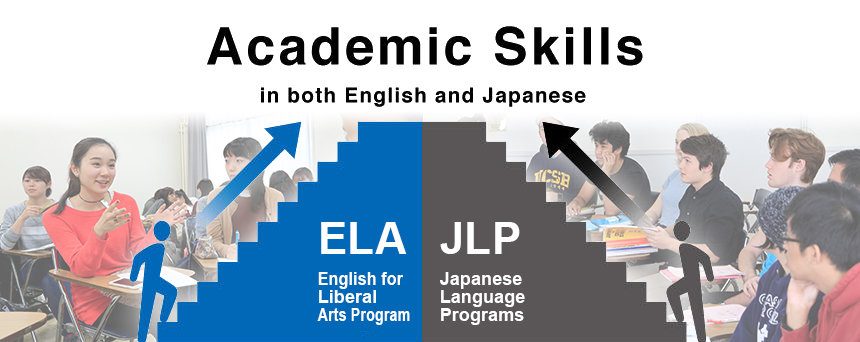
Students whose first language is Japanese study English in the ELA program, while those who have a different first language and who wish to improve their reading and writing skills take JLP courses take JLP courses. In addition, the two programs go beyond language instruction by providing an introduction to the liberal arts style of learning. They serve as a major pillar in the education ICU offers by making it possible for students from diverse backgrounds to study together in the liberal arts tradition without language barriers.
Japanese Language Programs at ICU
Ikumi Ozawa,
Director, Japanese English Programs
Japanese language education to meet diverse student needs
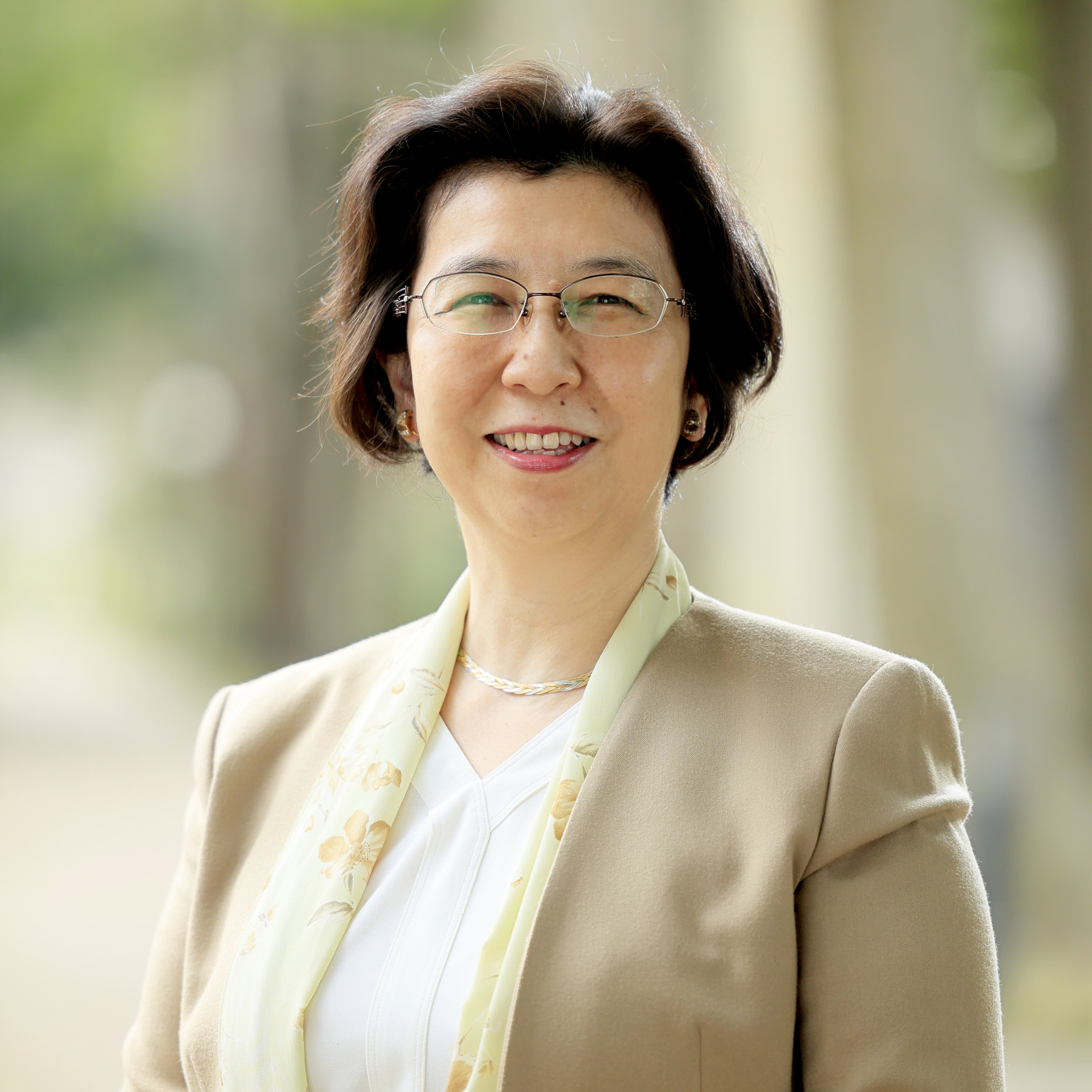
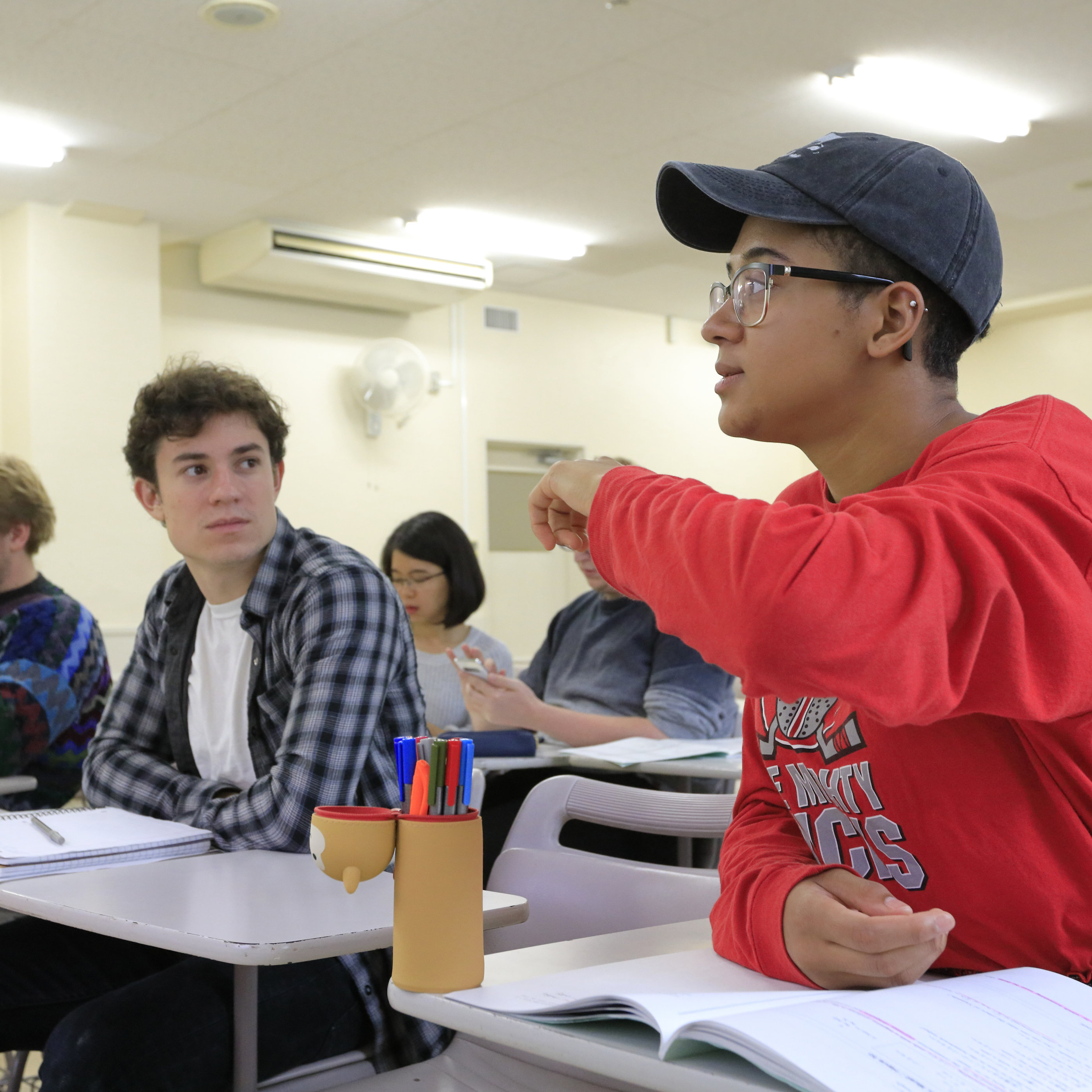
ICUのWhat our Japanese language education aspires to
Based on ICU's philosophy, JLP provides Japanese language education that cultivates relativistic attitude toward diverse cultures and values to nurture individuals who can contribute to society. We aim to foster the Japanese language skills necessary for university life and the following abilities: objective, relative, and multifaceted perspectives to conduct academic activities, problem-solving skills, information-gathering skills, and the ability to continue learning with autonomy.
We have published intermediate level (CEFR levels B1 and B2) textbooks used in the JLP courses as "Task-Based Learning Japanese for College Students (3A Corporation)". By engaging in different tasks learners acquire knowledge, Japanese language proficiency, and the ability to understand and think about the content" through reflection, group work, and dialogue with classmates. It features topics of interest to university students, moving gradually from matters in daily life to social and academic issues. Tasks at every stage constantly encourage to take a relativistic attitude toward things, work with others and reflect on their thinking.
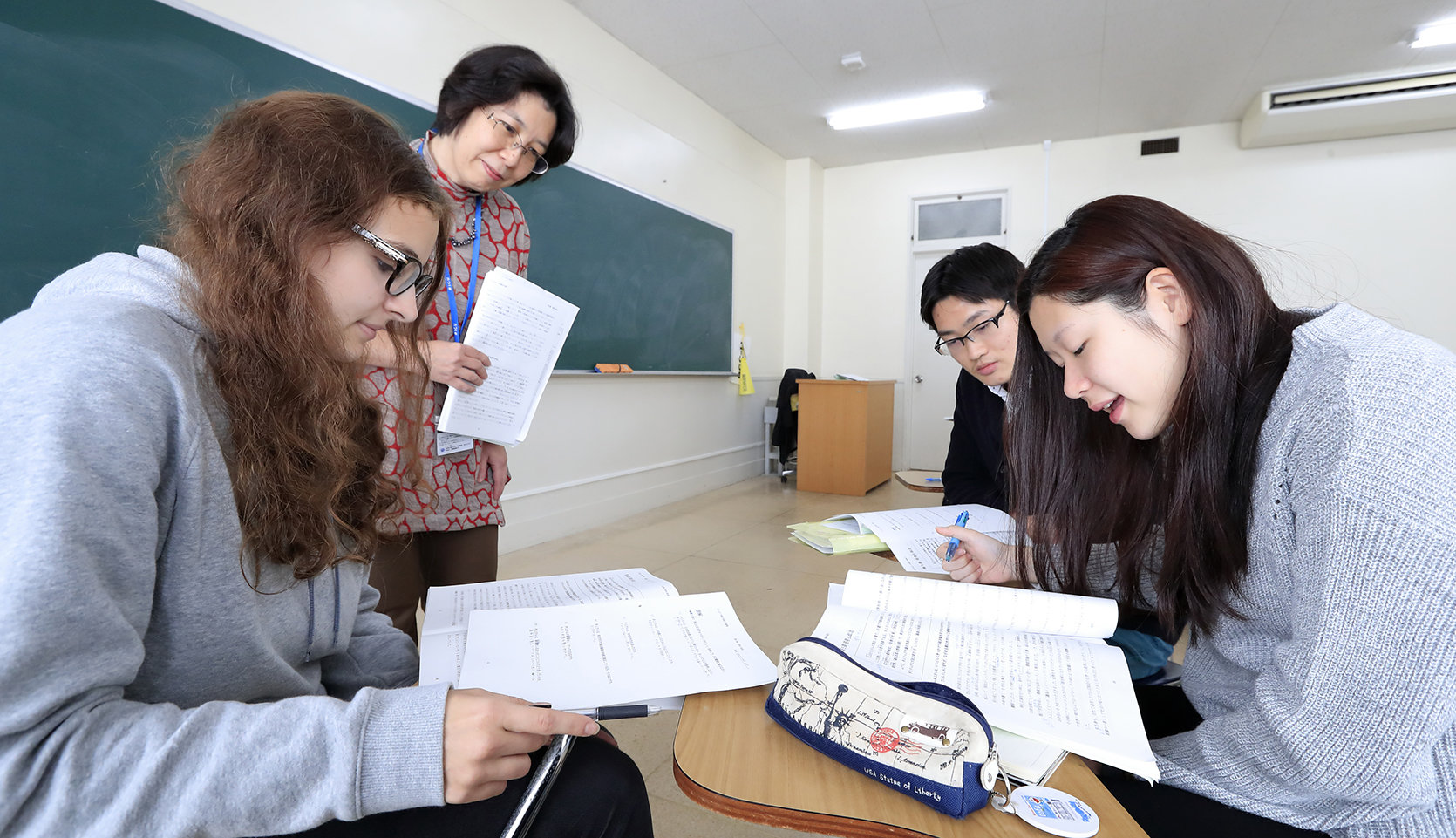
What JLP means for ICU
Many students have said the JLP courses not only improved their Japanese language proficiency but also provided the opportunity to enrich insights into themselves and others through encounters with others and dialogue in class. It was true not only for beginners but also those at the intermediate and advanced levels, and fluent speakers. During the covid pandemic, we have had to implement our courses online. Still, students told us they reaped the same benefits by remote means.。
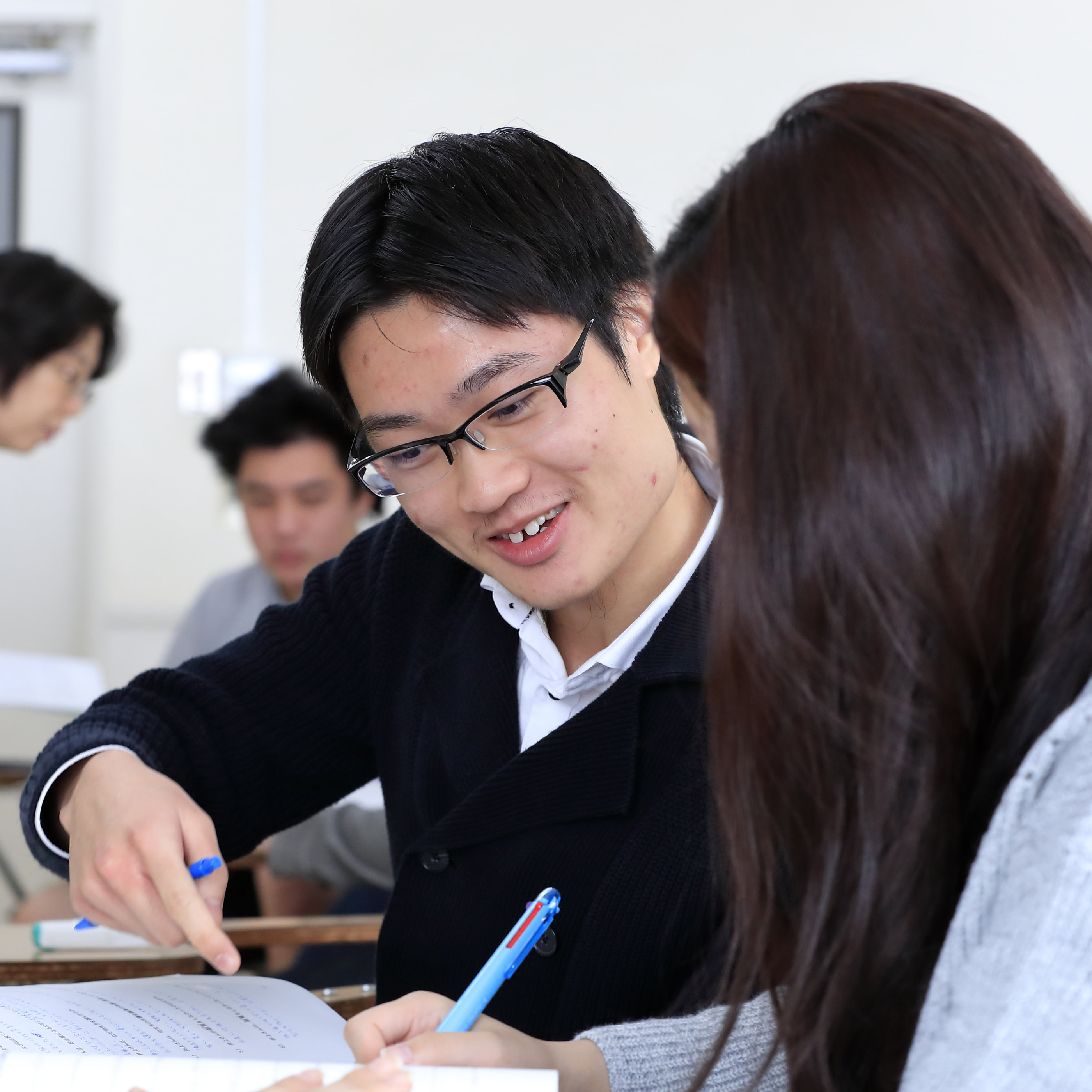
The students' growth is gratifying because JLP fulfills its role in first-year education and development of individuals. Learning a language affects the thinking process, expressing oneself, and understanding others. It can enrich our environment for individuals and society.
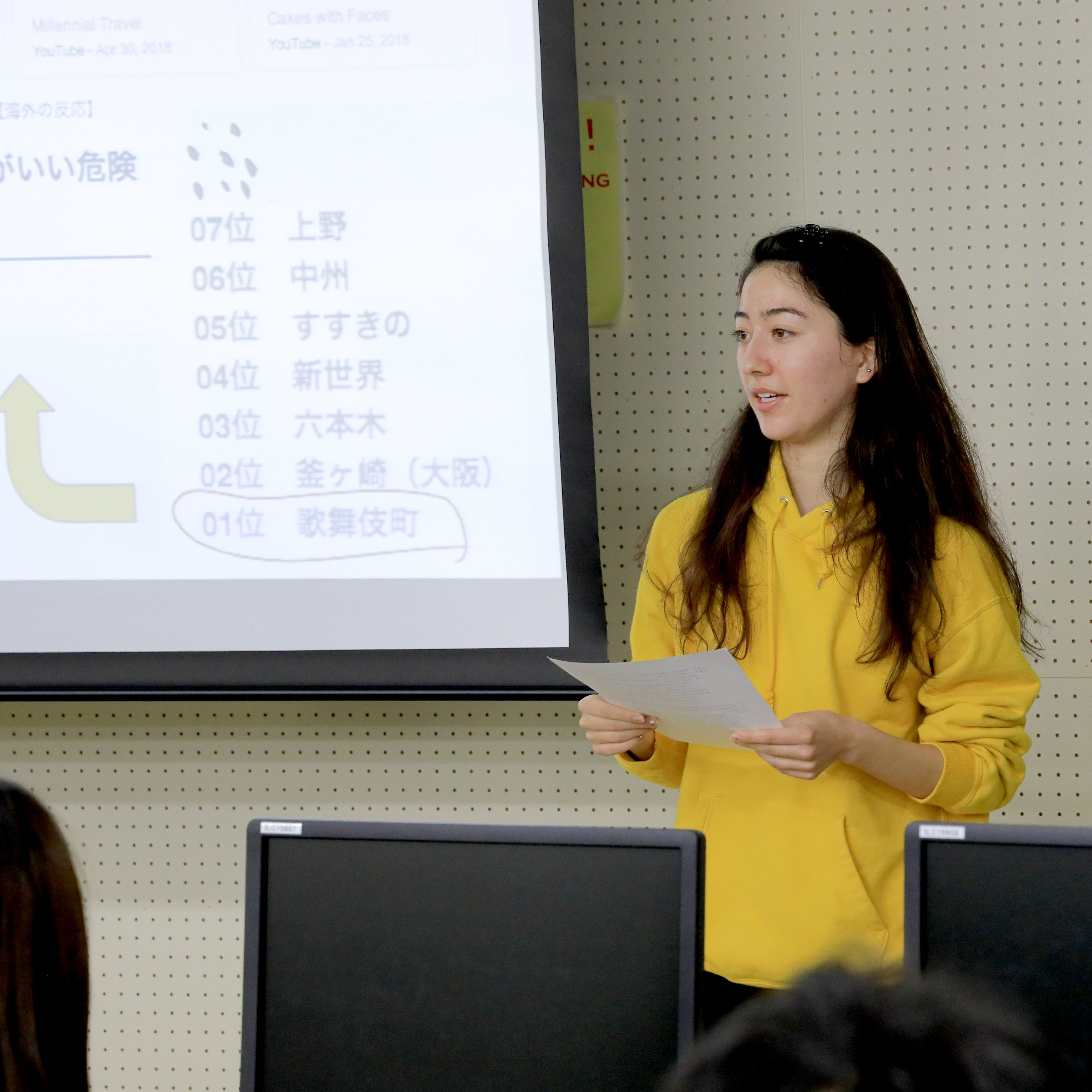
English Language Instruction at ICU
Akiko Fukao,
Director, English for Liberal Arts Program
The English for Liberal Arts (ELA) Program offers over 300 class hours per week to more than 1000 first-year and sophomore students. It provides training in English reading, listening, speaking and writing skills in an academic setting. "English at ICU" is renowned as an exceptionally effective program. Proficiency in the language is indispensable for anyone aspiring to study their filed of interest in depth in English. This is important because ICU offers many courses in English. Thus, the ELA is an ideal environment to polish skills in the language for academic purposes. The program operates in small classes of about 20 students and all its courses are designed to progress with dialogue between students and with faculty.
The ELA also provides an introduction to the liberal arts style of learning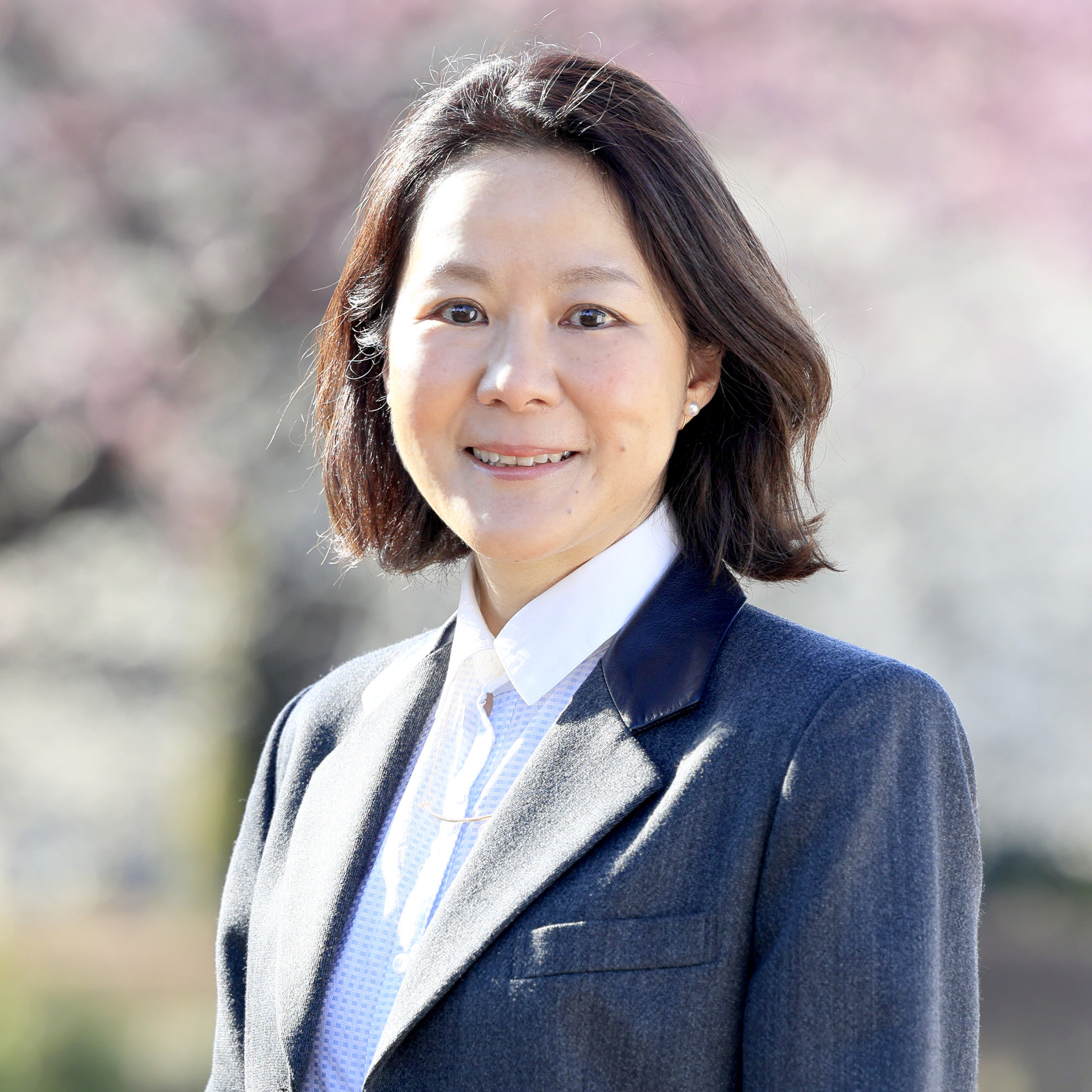
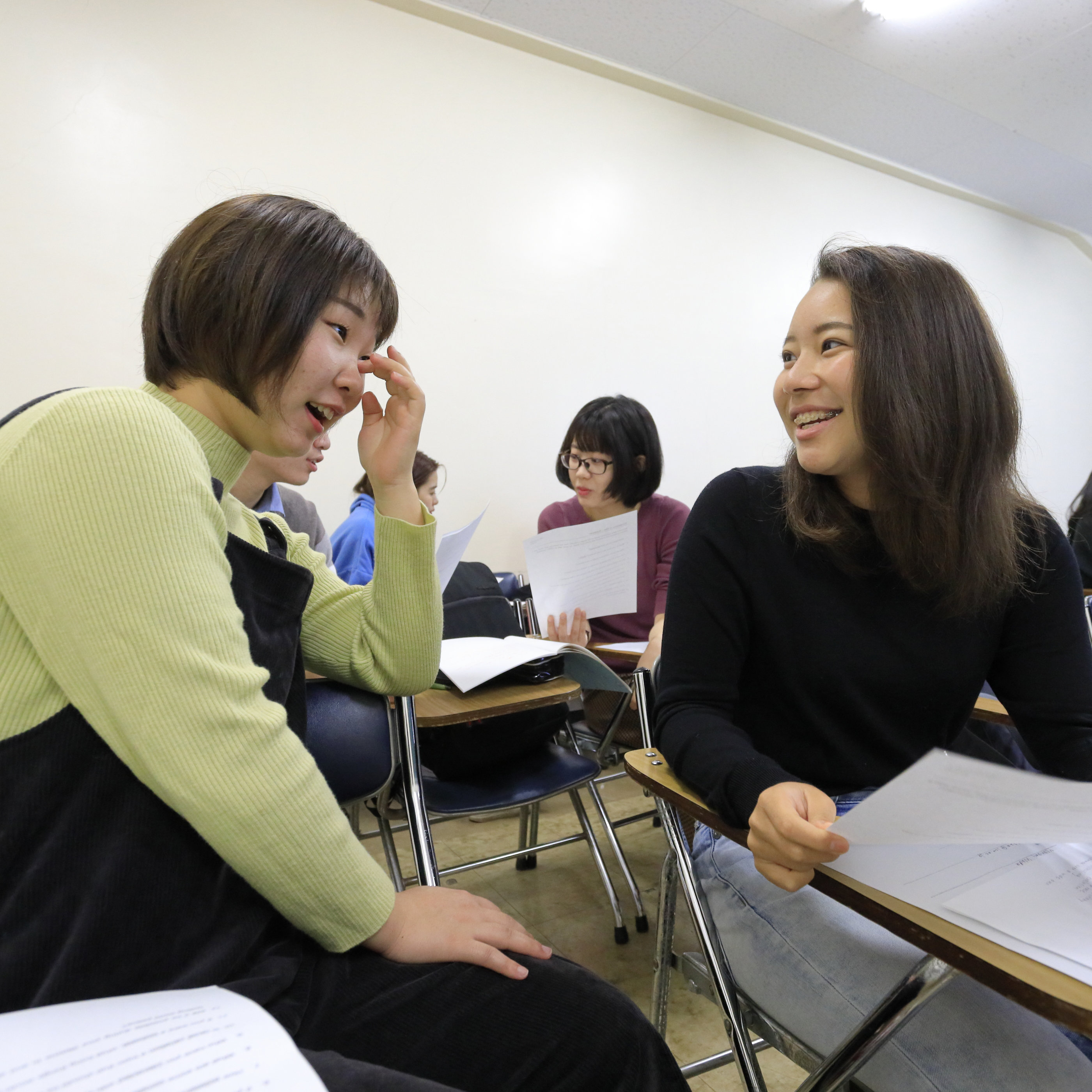
Why are English language courses used for first-year education?
One can imagine what a challenge the first-year education to liberal arts is for most of our new students who have learned their English in the Japanese education system. Some may think this phase would be more effectively implemented in their first language. However, the language handicap is important.
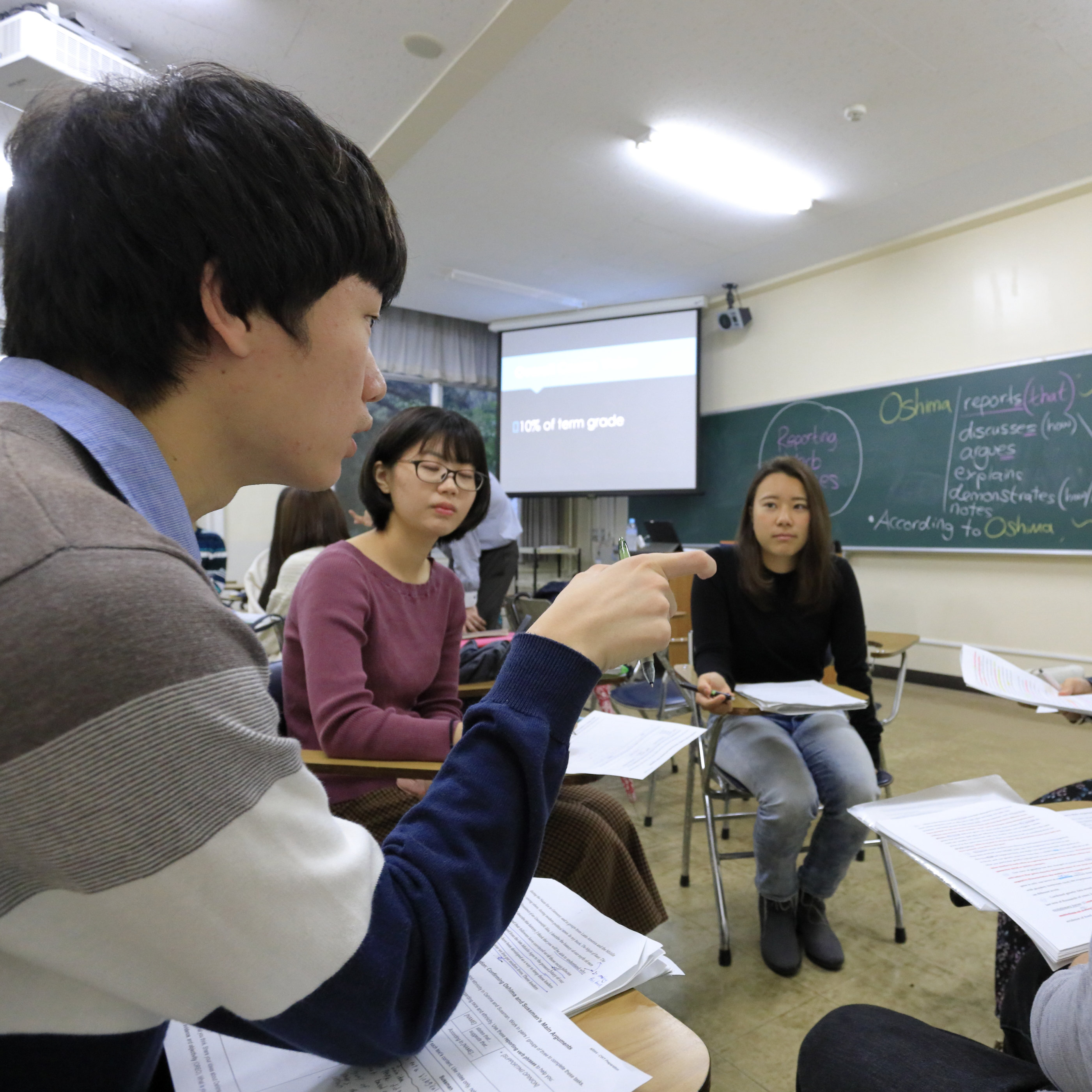
Students who have just started with ELA courses may blame their lack of English ability for the challenge they face in academic English communication such as the time-consuming effort in reading articles, lack of sufficient vocabulary to express opinions articulately, and the countless times they need to rewrite sentences due to lack of English grammar skills. However, once they get used to the daily ELA assignments, they realize the process accompanying the effort to express themselves in English also helps them think independently about whether their ideas are justified and choose the necessary information for a convincing argument. This instills a critical and creative mindset in devising innovative ways to interact with others.
English language education as a first step in the learning in liberal arts
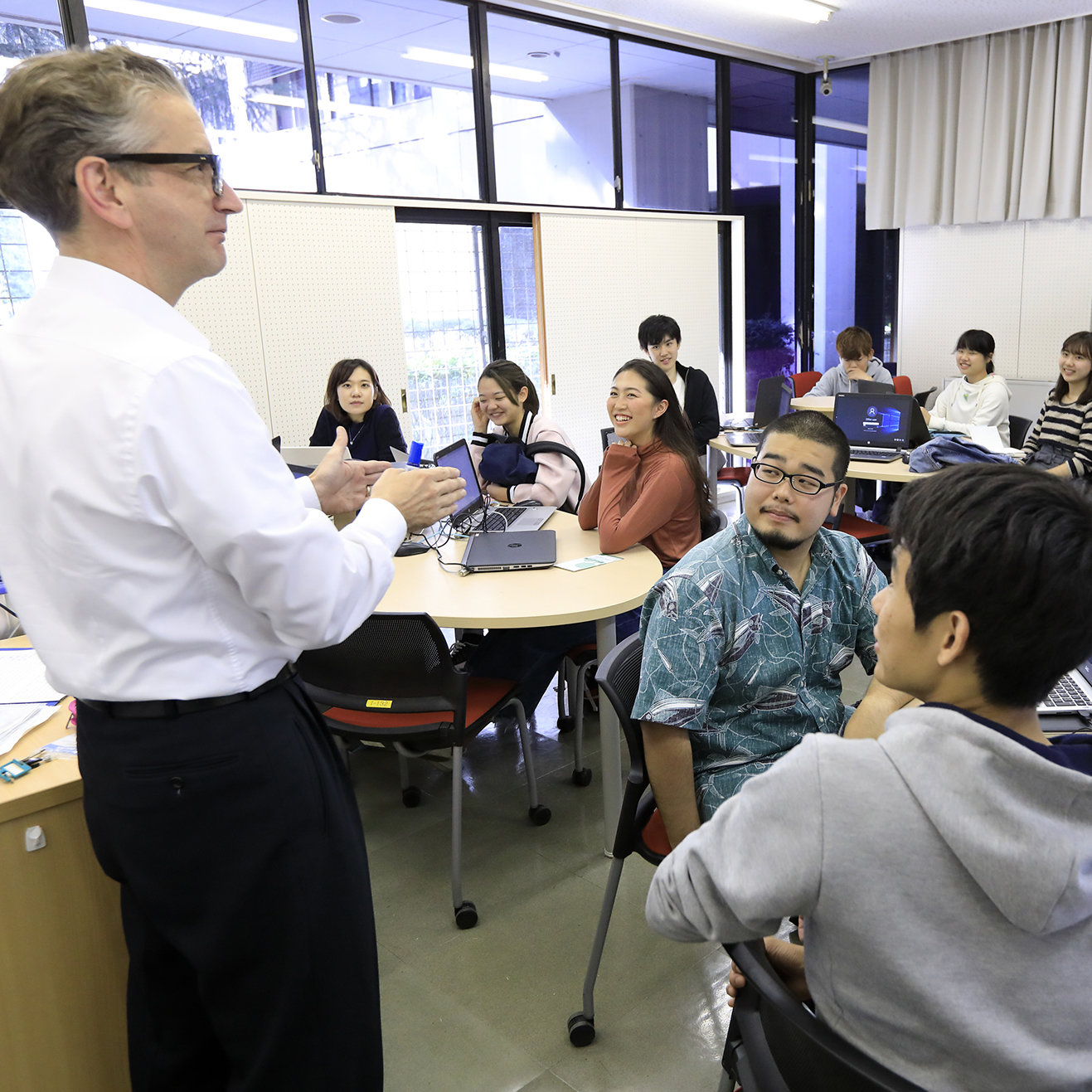
These important skills can also be applied when taking courses in their first language. As students go on to delve deeply into their specialties, coursework will be an advanced variation of the ELA assignments, culminating in the senior thesis. The ELA as the college-wide program offers the opportunity to polish academic communication skills and therefore needs to be placed at the very beginning of the curricular sequence in liberal arts.
English for Liberal Arts Program(ELA)
Japanese Language Programs(JLP)
Profiles
Ikumi Ozawa
Director, Japanese Language Programs
Ms. Ozawa completed her master's degree at International Christian University Graduate School Division of Comparative Culture. She specializes in Japanese language education, cultural psychology, and program evaluation. Her co-authored publications include Nihongo Kyoiku no Tame no Shitsuteki Kenkyu Nyumon: Gakushu Kyoshi Kyoshitsu wo Ikani Egakuka (Introduction to Qualitative Studies in Japanese Language Education: How to portray learning, teachers and the classroom, Koko Shuppan) and PAC Bunseki Jissenshu 3: Shien Tsuru de Kokomade Dekiru (Personal Attitude Consturuct Analysis Practical Examples: What can be accomplished with support tools, Nakanishiya)
Akiko Fukaov
Director, English for Liberal Arts Program
Ms. Fukao completed her master's degree at San Francisco State University Graduate School in TESOL (Teaching English as a Second / Foreign Language. She specializes in English for Academic Purposes (EAP) and curriculum development. Her co-authored publications include ICU no Eigokyoiku: Liberaru Atsu no Motoni (English Language Education at ICU, founded on Liberal Arts, Kenkyusha) and Daigakuno Eigo Kyoikuo Kaeru: Comyunikeshonryoku Kojyo eno Jissen Shishin (Innovative Techniques in English Language Education in Universities: Practical Principles to Improve Communication Skills, Tamagawa University Publishing Division)
